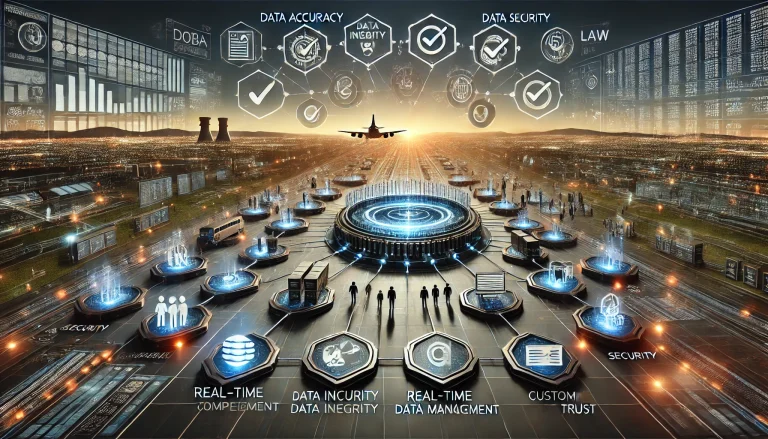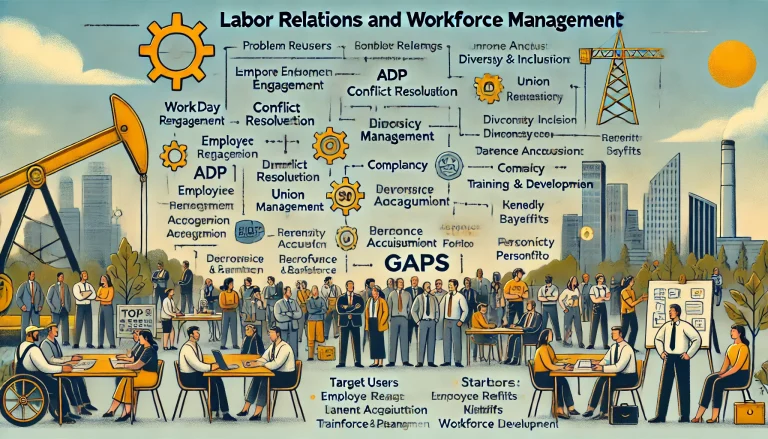Problem Statement
The aviation industry is deeply intertwined with complex global supply chains that provide essential components such as aircraft parts, fuel, and maintenance supplies. These supply chains span multiple countries and involve numerous suppliers, making them vulnerable to disruptions caused by a wide range of factors, including geopolitical conflicts, pandemics, natural disasters, and economic shifts. When these disruptions occur, they can lead to significant delays, increased costs, and operational challenges for airlines, affecting everything from aircraft availability to flight schedules and passenger services.
For instance, a geopolitical conflict might disrupt the supply of critical parts from a particular region, or a natural disaster could halt fuel production or distribution, leading to shortages. The COVID-19 pandemic highlighted these vulnerabilities, as lockdowns and restrictions across the globe led to significant delays in the production and delivery of aircraft parts, grounding fleets and causing financial strain on airlines.
Given the industry’s reliance on timely and precise delivery of components, even minor disruptions can have cascading effects, leading to delays in aircraft maintenance, grounded flights, and increased operational costs. The challenge is further compounded by the stringent safety and regulatory standards in aviation, which leave little room for flexibility in sourcing and procurement.
To mitigate these risks and ensure the stability of operations, the aviation industry must develop more resilient supply chains. This involves diversifying suppliers, investing in local production capabilities, enhancing transparency and communication across the supply chain, and leveraging technology to monitor and respond to disruptions in real-time. By strengthening supply chain resilience, airlines can better navigate uncertainties and maintain the continuity of operations, ultimately safeguarding their financial performance and customer satisfaction.
Pain Points
- Supplier Dependence: Heavy reliance on specific suppliers or regions for critical components.
- Geopolitical Risks: Disruptions due to geopolitical conflicts affecting supply chain stability.
- Pandemic Impact: Supply chain delays and disruptions caused by global health crises like COVID-19.
- Natural Disasters: Vulnerability to supply chain interruptions due to natural disasters such as earthquakes or hurricanes.
- Increased Costs: Rising operational costs due to supply chain disruptions and delays.
- Operational Delays: Aircraft maintenance and operations affected by delays in the delivery of parts and components.
- Regulatory Compliance: Challenges in meeting stringent aviation safety and regulatory standards during supply chain disruptions.
- Limited Flexibility: Difficulty in quickly sourcing alternative suppliers or components during disruptions.
- Global Coordination: The complexity of managing a global supply chain with multiple suppliers and logistics partners.
- Transparency and Communication: Lack of real-time visibility and communication across the supply chain, hindering timely responses to disruptions.

Future Vision
Our platform envisions a future where the aviation industry has developed robust and resilient supply chains that can withstand global disruptions and ensure the continuity of operations. To achieve this, the platform will promote diversification of suppliers, encouraging airlines and manufacturers to source components from multiple regions and reduce dependence on single suppliers. By building relationships with a wider network of suppliers, the industry can better manage risks and ensure a steady flow of critical components, even in the face of disruptions.
Investing in local production capabilities will also be a key focus, enabling airlines and manufacturers to produce essential parts and components closer to their operational hubs. This not only reduces the risk of delays but also enhances the ability to meet regulatory requirements and maintain safety standards.
The platform will also advocate for the adoption of advanced technologies, such as supply chain management software, real-time tracking systems, and predictive analytics. These tools will provide greater visibility into supply chain operations, allowing airlines to monitor and respond to disruptions more effectively. By using data-driven insights, airlines can anticipate potential issues, optimize inventory levels, and make informed decisions to minimize the impact of disruptions.
Enhanced transparency and communication across the supply chain will be critical in building resilience. The platform will support initiatives that foster collaboration and information sharing between suppliers, manufacturers, and airlines, ensuring that all parties are aligned and can respond quickly to challenges.
Through these initiatives, our platform aims to create a more resilient aviation supply chain, capable of withstanding global disruptions and ensuring the stability of operations. This will not only protect airlines’ financial performance but also enhance customer satisfaction by minimizing delays and maintaining high levels of service.
Use Cases
- Supplier Diversification: Developing a network of suppliers from multiple regions to reduce reliance on single sources.
- Local Production Initiatives: Investing in local manufacturing capabilities to produce critical components closer to operational hubs.
- Supply Chain Management Software: Implementing advanced software to monitor and manage supply chain operations in real-time.
- Predictive Analytics: Using data analytics to anticipate potential disruptions and optimize inventory levels.
- Real-Time Tracking Systems: Deploying tracking technologies to monitor the movement of components across the supply chain.
- Regulatory Compliance Tools: Ensuring that suppliers meet aviation safety and regulatory standards through compliance software.
- Collaborative Communication Platforms: Creating platforms for information sharing and collaboration between suppliers, manufacturers, and airlines.
- Risk Management Strategies: Developing strategies to assess and mitigate risks associated with supply chain disruptions.
- Global Coordination: Enhancing coordination between global suppliers and logistics partners to streamline operations.
- Disaster Recovery Plans: Implementing plans to quickly recover from supply chain disruptions caused by natural disasters.
Target Users and Stakeholders
- User: Supply Chain Managers, Procurement Officers, Airline Operations Teams, and Aviation Manufacturers
- Age Group: 30-60 years
- Gender: M/F
- Usage Pattern: Regular usage for managing supply chain operations, sourcing components, and responding to disruptions in the aviation industry
- Benefit: Enhanced supply chain resilience, reduced operational disruptions, and improved cost management
- Stakeholders:
- Airlines: Companies relying on timely and reliable supply chains for aircraft maintenance and operations
- Aviation Manufacturers: Producers of aircraft parts and components critical to airline operations
- Suppliers: Companies providing parts, fuel, and other materials to the aviation industry
- Regulatory Bodies: Agencies overseeing aviation safety and supply chain standards
- Technology Providers: Companies developing software and tools for supply chain management and monitoring
Key Competition
- SAP Ariba: Provides supply chain management solutions that enhance procurement and supplier collaboration.
- Oracle SCM Cloud: Offers cloud-based supply chain management tools for real-time visibility and risk management.
- GE Aviation: Develops advanced analytics and supply chain management solutions tailored for the aviation industry.
- Honeywell Forge: Delivers supply chain optimization and risk management tools for airlines and manufacturers.
- IATA (International Air Transport Association): Works on industry-wide initiatives to improve supply chain resilience and standardization.
Products/Services
- SAP Ariba Supply Chain Management: Enhances procurement and supplier collaboration for resilient supply chains.
- Oracle SCM Cloud Solutions: Provides cloud-based tools for real-time visibility and supply chain risk management.
- GE Aviation Analytics: Offers advanced analytics for optimizing aviation supply chains and operations.
- Honeywell Forge Supply Chain Tools: Delivers supply chain optimization and risk management solutions for the aviation industry.
- IATA Supply Chain Initiatives: Industry-wide programs focused on improving supply chain resilience and standardization.
Active Startups
- Resilinc: Specializes in supply chain resilience and risk management solutions for global industries, including aviation.
- Elementum: Provides real-time supply chain visibility and collaboration tools to manage disruptions effectively.
- ClearMetal: Uses AI and machine learning to optimize supply chain operations and enhance predictive capabilities.
- Llamasoft: Develops supply chain design and analytics tools for improving resilience and operational efficiency.
- Slync.io: Offers a logistics and supply chain platform that integrates with existing systems to improve visibility and coordination.
- Shipwell: Focuses on supply chain and logistics management with real-time tracking and predictive analytics.
- FourKites: Provides real-time supply chain visibility and predictive analytics for global industries.
- Riskmethods: Specializes in supply chain risk management and resilience-building tools.
- Everstream Analytics: Uses AI-driven insights to predict and mitigate supply chain risks before they impact operations.
- Exiger: Focuses on supply chain resilience and compliance solutions, particularly in high-risk industries.
Ongoing Work in Related Areas
- Supply Chain Resilience Research: Developing new strategies and technologies to enhance the resilience of aviation supply chains.
- Risk Management and Mitigation: Exploring best practices for assessing and mitigating supply chain risks in aviation.
- Local Production and Sourcing: Investigating the benefits and challenges of increasing local production capabilities in aviation.
- Regulatory Compliance and Standards: Working on improving compliance with aviation safety and supply chain regulations.
- Supply Chain Collaboration Platforms: Advancing platforms that enable better communication and coordination between supply chain partners.
Recent Investment
- Resilinc: $30M in Series B funding led by Cultivian Sandbox, March 2021.
- Elementum: $60M in Series C funding led by Lightspeed Venture Partners, October 2019.
- ClearMetal: $15M in Series B funding led by Eclipse Ventures, April 2018.
- Llamasoft: $50M in Series C funding led by Goldman Sachs, November 2020.
- Slync.io: $60M in Series B funding led by Goldman Sachs, March 2021.
Market Maturity
The market for supply chain resilience in aviation is rapidly maturing, drive by the need to manage global disruptions and ensure the stability of operations. Companies like SAP Ariba, Oracle SCM Cloud, and GE Aviation are leading the way with advanced supply chain management solutions, while startups like Resilinc, Elementum, and ClearMetal are innovating with AI-driven tools and real-time visibility platforms. Significant investments in supply chain resilience, risk management, and local production capabilities are transforming the aviation industry, enabling airlines and manufacturers to better navigate global uncertainties. As the market continues to evolve, we expect to see more integrated and resilient supply chains that can withstand disruptions and maintain high levels of operational performance.
Summary
The aviation industry relies heavily on complex global supply chains for aircraft parts, fuel, and other critical components. Disruptions in these supply chains, whether due to geopolitical conflicts, pandemics, or natural disasters, can lead to delays, increased costs, and operational challenges for airlines. Developing resilient supply chains is crucial for the industry’s stability. Our proposed platform leverages supplier diversification, local production initiatives, supply chain management software, and predictive analytics to address these challenges. Key pain points include supplier dependence, geopolitical risks, pandemic impact, natural disasters, increased costs, operational delays, regulatory compliance, limited flexibility, global coordination, and transparency and communication.
Target users include supply chain managers, procurement officers, airline operations teams, and aviation manufacturers, with stakeholders encompassing airlines, aviation manufacturers, suppliers, regulatory bodies, and technology providers. Key competitors like SAP Ariba, Oracle SCM Cloud, GE Aviation, Honeywell Forge, and IATA offer various supply chain management solutions, while startups such as Resilinc, Elementum, and ClearMetal are driving innovation in this space. Recent investments highlight significant interest and growth potential in platforms addressing supply chain resilience in aviation.
By addressing these challenges and leveraging advanced technologies, our platform aims to create a more resilient aviation supply chain, capable of withstanding global disruptions and ensuring the stability of operations. This will not only protect airlines’ financial performance but also enhance customer satisfaction by minimizing delays and maintaining high levels of service.



